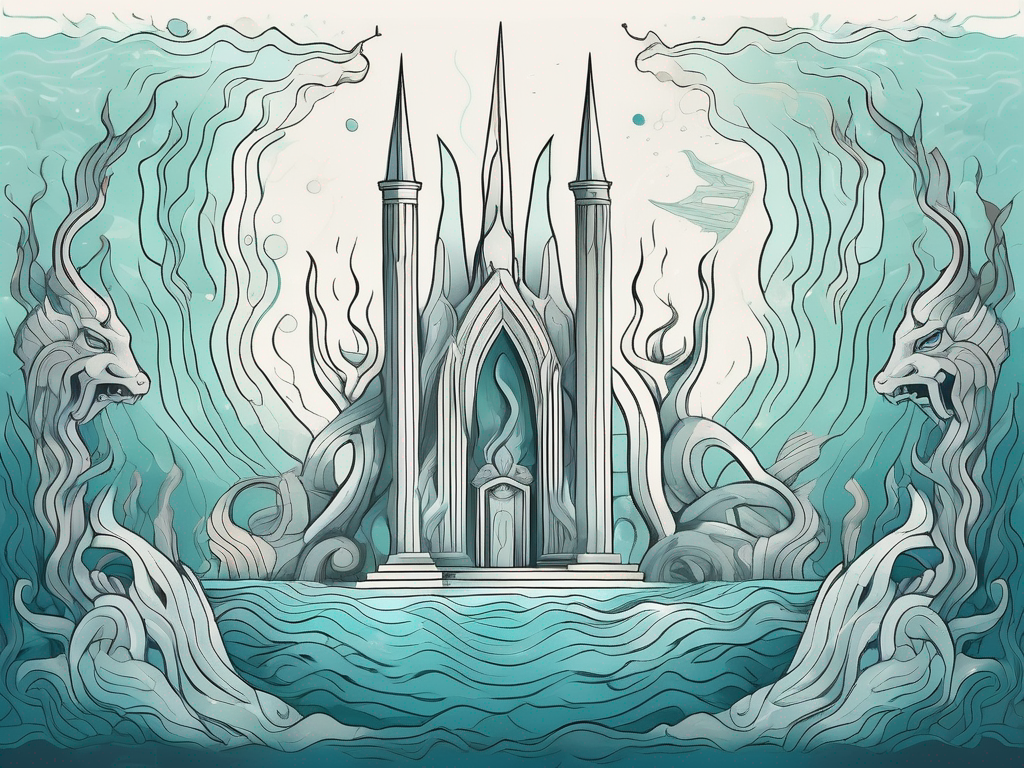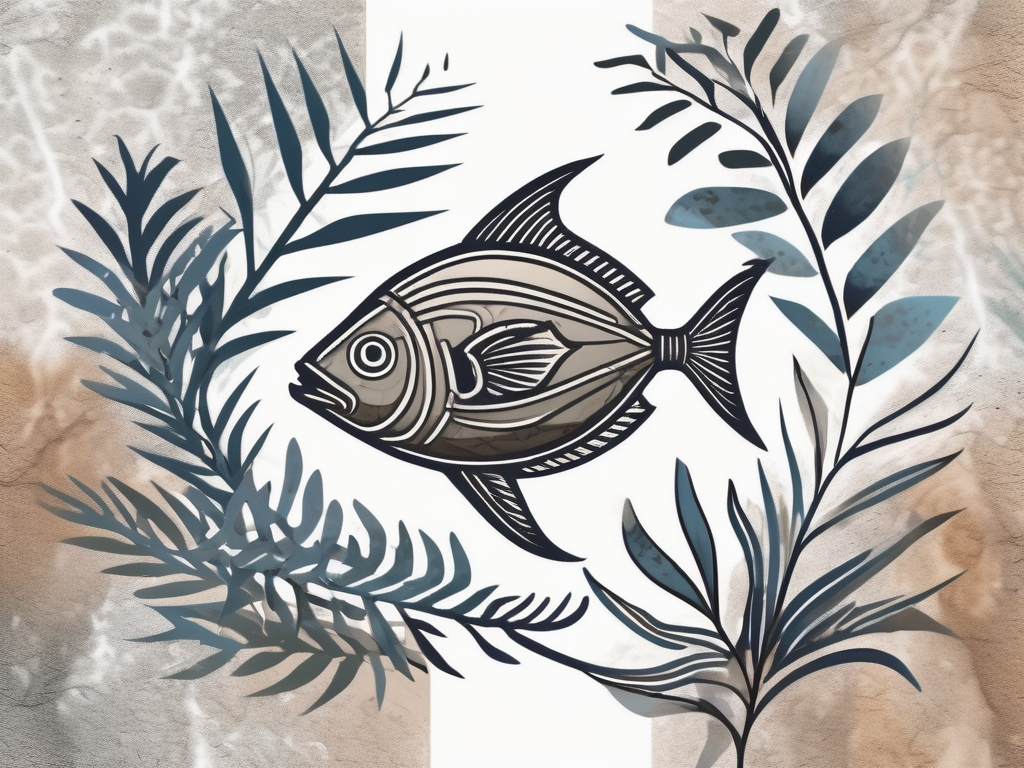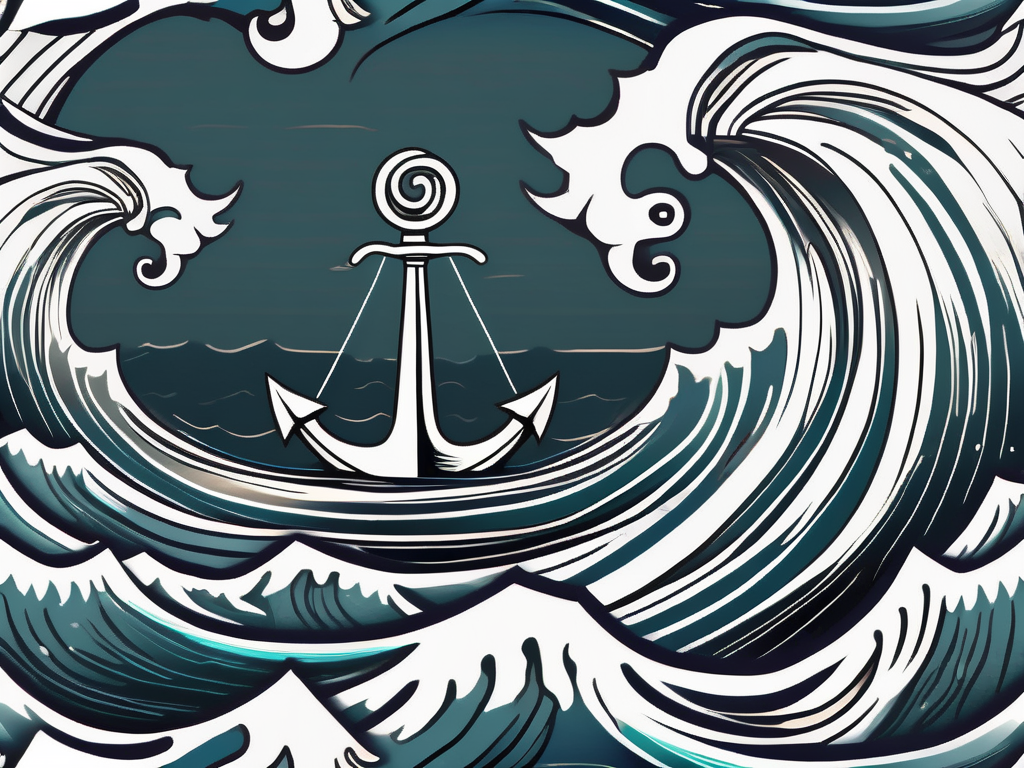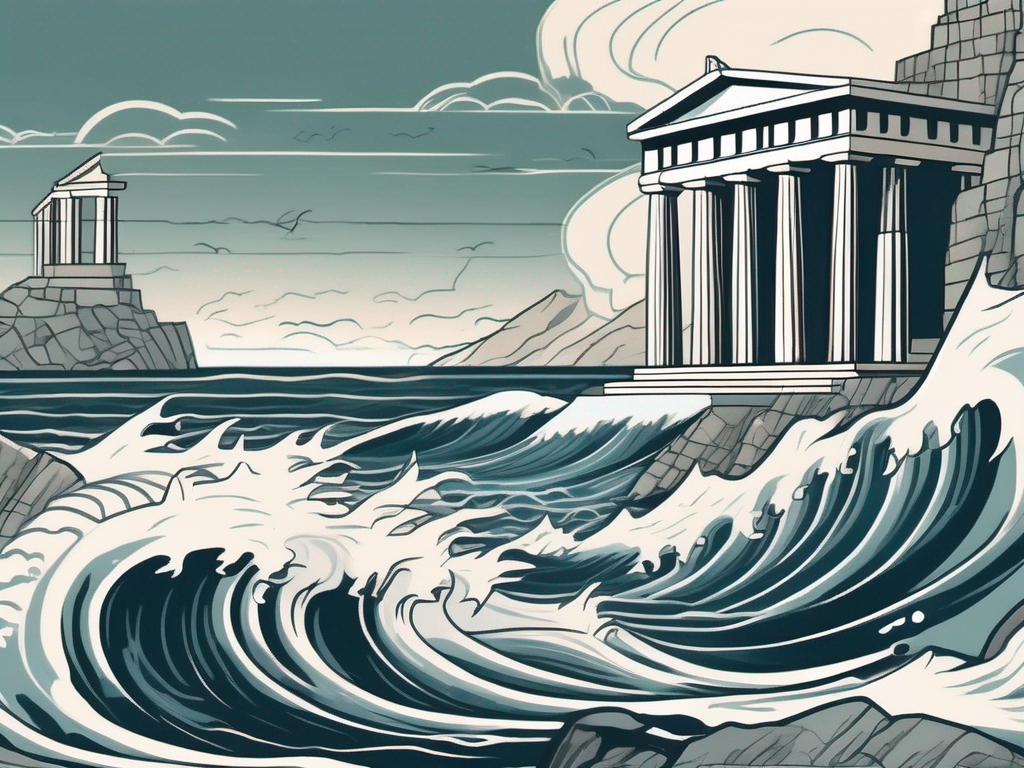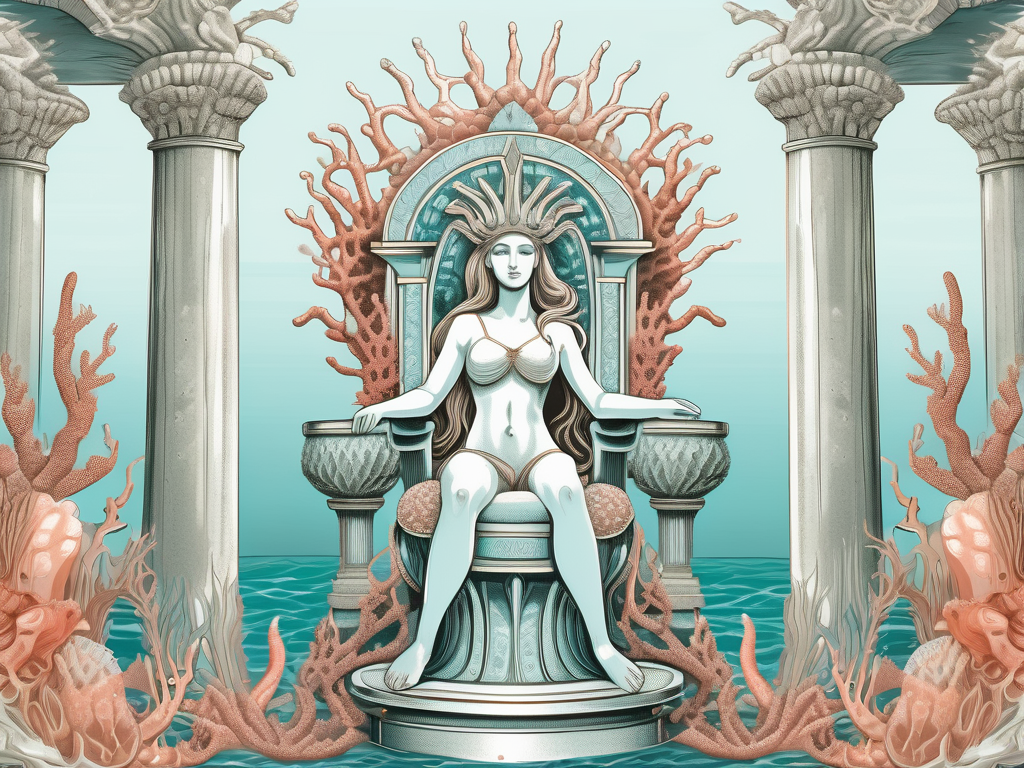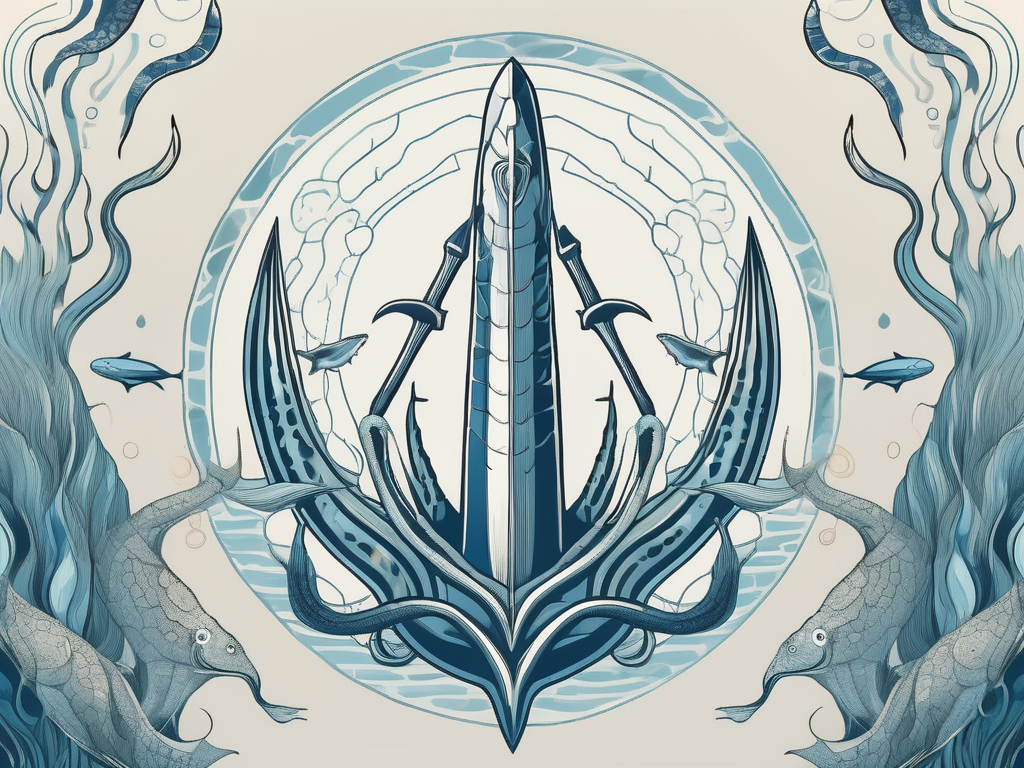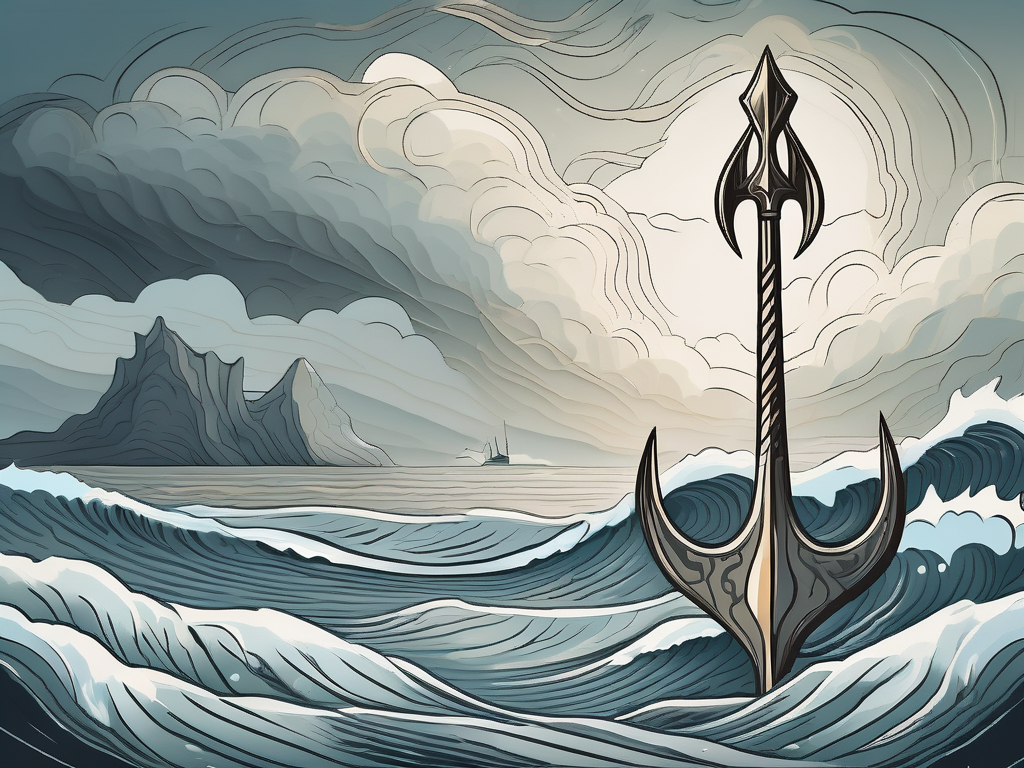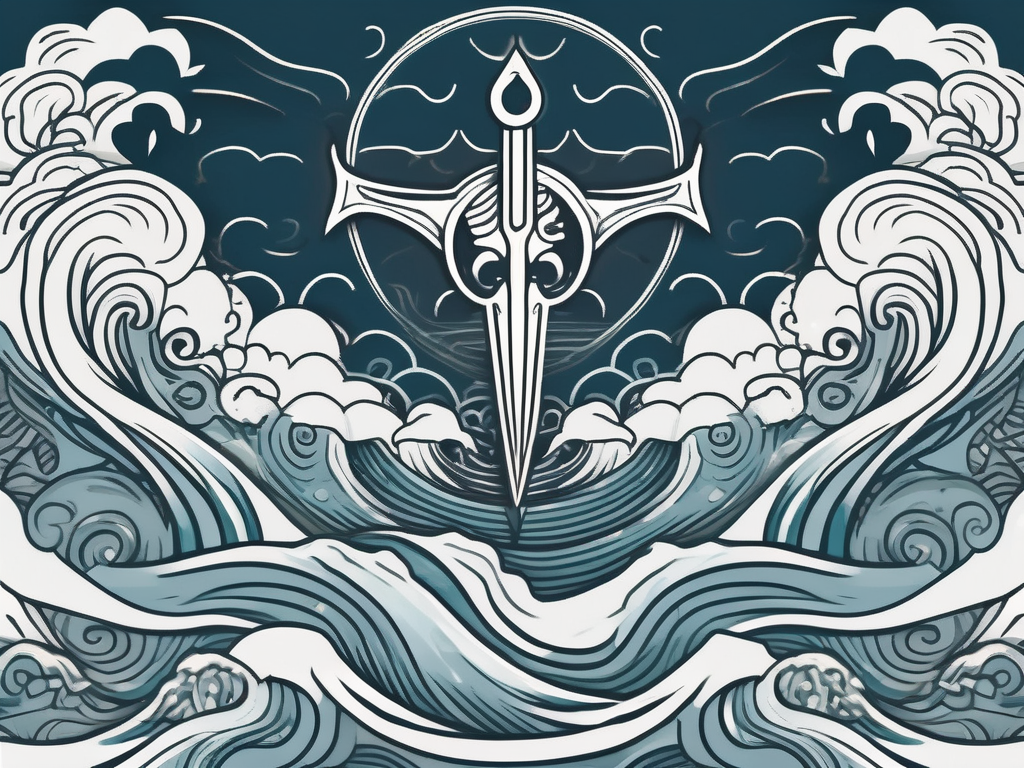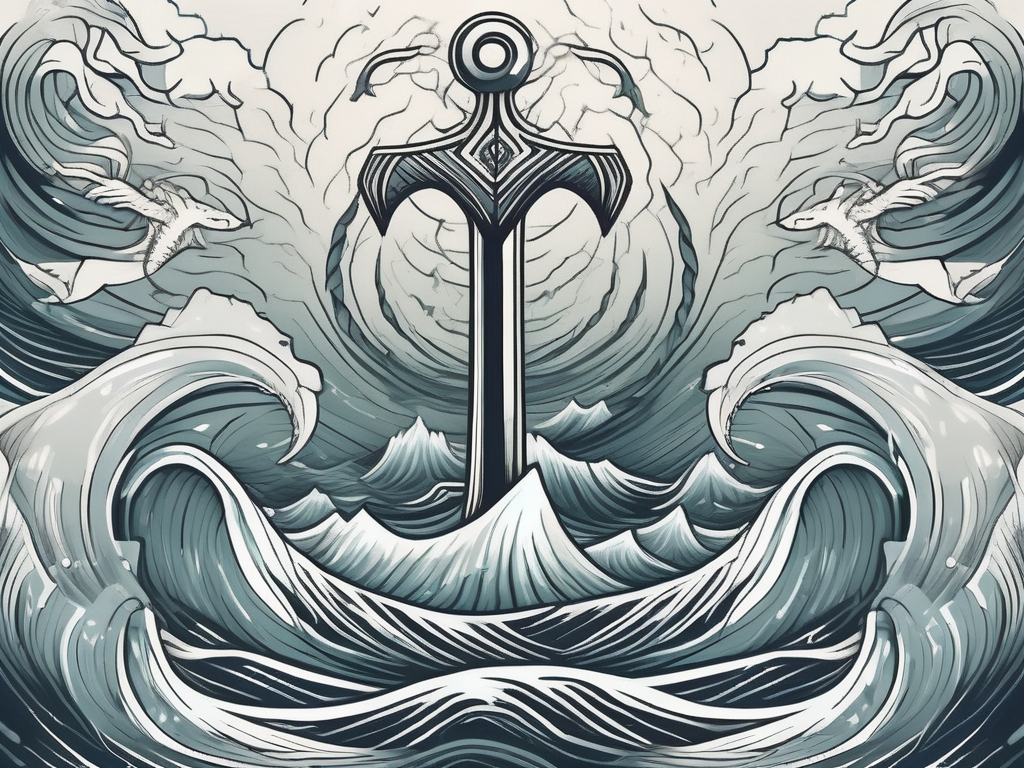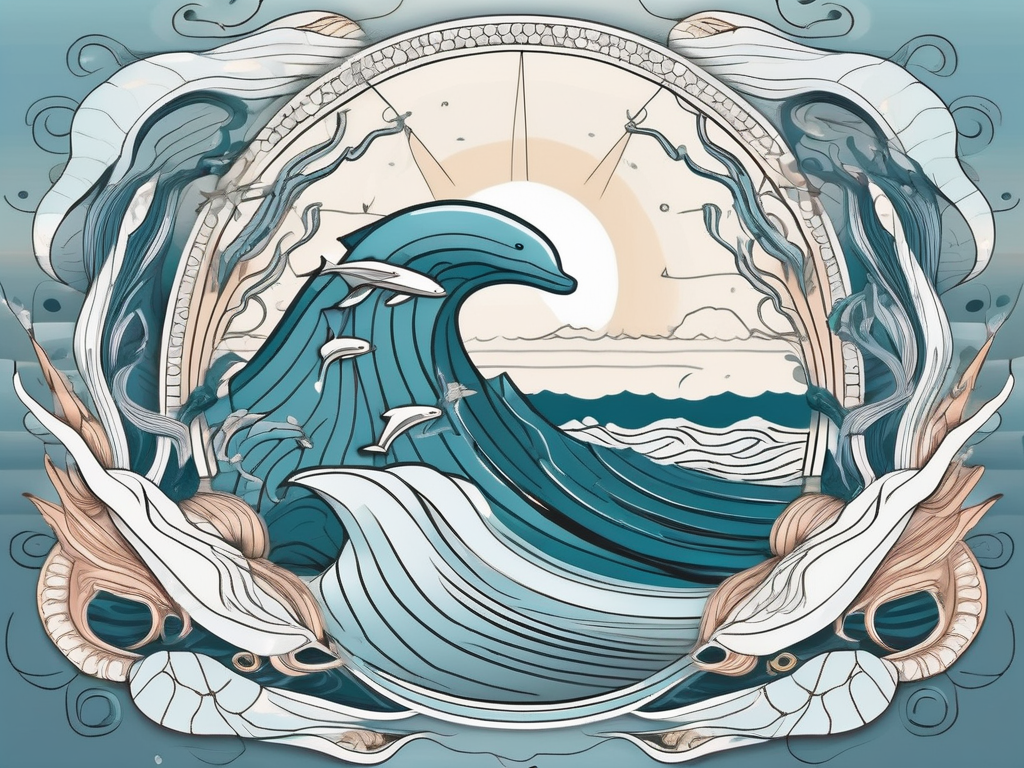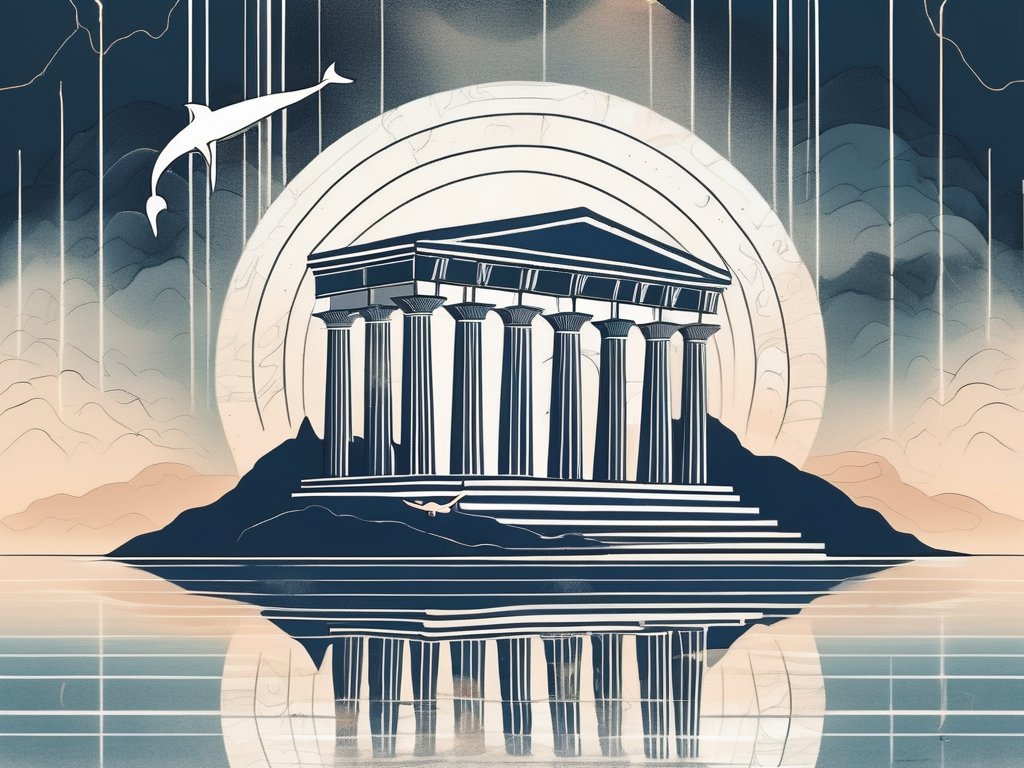In Greek mythology, Triton remains one of the most captivating and enigmatic gods. Known as the Greek God of the Sea, Triton has fascinated people through the ages with his immense power and unparalleled influence. With his trident in hand and his half-human, half-fish appearance, Triton’s presence in Greek mythology is both awe-inspiring and mysterious. Let us dive deep into the realm of Triton and uncover the secrets surrounding this mythical figure.
Unveiling Triton: The Greek God of the Sea
Before we delve into Triton’s captivating realm, let us first explore who he is. In Greek mythology, Triton is the son of the powerful sea god Poseidon and Amphitrite, a sea nymph. Born and raised amidst the crashing waves and vast expanse of the sea, Triton embodies the essence of marine life in all its glory.
With his upper body resembling that of a human and his lower body consisting of a fish’s tail, Triton’s unique appearance sets him apart from other gods. His distinct features make him instantly recognizable and lead to countless artistic portrayals throughout history.
But what lies beyond Triton’s physical appearance? Let us dive deeper into his role and significance in Greek mythology.
Triton’s Role in Greek Mythology
Triton holds a significant role in Greek mythology as the messenger of the sea. As the son of Poseidon, he acts as a mediator between his father and other gods, often relaying messages and carrying out missions on behalf of the mighty sea god.
Imagine Triton, traversing the vast expanse of the ocean, his powerful tail propelling him through the depths. With every stroke, he navigates the treacherous waters, ensuring that the messages of the gods reach their intended recipients. His presence brings a sense of order and communication to the chaotic realm of the sea.
But Triton’s responsibilities extend beyond being a mere messenger. He is also considered the guardian of the sea. With his trident, he controls the ocean’s waves and possesses the ability to calm or unleash its mighty fury. This power instills both fear and respect among sailors and seafarers, who understand the unpredictable nature of the sea.
Picture Triton, standing tall on the crest of a wave, his trident held high. With a flick of his wrist, he can calm the raging storm, providing a safe passage for ships. Yet, with a single command, he can summon the wrath of the sea, unleashing a tempest that can swallow whole fleets. His control over the ocean’s power is awe-inspiring, making him a force to be reckoned with.
Triton’s Iconography: Depictions and Symbolism
Depicted in ancient Greek art and literature, Triton is often shown blowing a conch shell, which symbolizes his power over the sea. The sound of his conch shell can be heard across vast distances, serving as a warning or a call to arms. This iconic imagery reinforces Triton’s position as the herald of the sea, commanding attention and respect from all who hear it.
Imagine the sound of Triton’s conch shell echoing through the vastness of the ocean, reaching the ears of sailors and creatures alike. It is a sound that demands attention, a sound that signifies the presence of a god. It is a sound that carries both the promise of protection and the threat of destruction.
Furthermore, Triton’s fish-like tail symbolizes his connection to marine creatures and the deep depths of the ocean. This symbolism highlights his ability to navigate and control the mysterious underwater world, a realm that remains largely unknown to humans.
Imagine Triton, gracefully swimming alongside dolphins, his tail propelling him effortlessly through the crystal-clear waters. He moves with the grace of a creature born of the sea, his every movement in perfect harmony with the rhythm of the ocean. His connection to marine life is undeniable, as he effortlessly communicates with the creatures that call the sea their home.
As we explore Triton’s realm, we will uncover the wonders and mysteries that lie beneath the surface of the sea. From the vibrant coral reefs teeming with life to the dark abyss that holds secrets yet to be discovered, Triton’s presence is felt in every corner of the ocean.
The Power and Influence of Triton
Now that we have familiarized ourselves with Triton’s identity and his role in Greek mythology, let us explore the extent of his power and influence.
Triton’s Abilities and Special Powers
Triton possesses a variety of divine powers that contribute to his mythical strength. Apart from his control over the sea’s waves, he can manipulate and shape water at will. Whether it be creating vast whirlpools or summoning water spouts, Triton showcases his mastery over this life-giving element.
Furthermore, Triton has the ability to communicate with marine creatures. Dolphins, whales, and various other sea creatures are known to heed his call, reinforcing his position as their protector. This connection between Triton and marine life further enhances his already formidable power.
Triton’s Influence Over the Sea and Marine Life
Throughout Greek mythology, Triton’s influence over the sea and its creatures is evident. Sailors and seafarers often offer prayers and sacrifices to Triton in hopes of smooth voyages and protection from the treacherous waters.
Moreover, Triton’s association with the sea extends beyond the physical realm. As a god closely tied to the ocean’s depths, he symbolizes the unpredictable and sometimes destructive forces of nature. This influence serves as a reminder of the immense power and uncontrollable might of the sea.
Triton’s Enigmatic Realm: The Sea and Beyond
Now that we have explored Triton’s powers and influence, let us venture into his domain, the vast expanse of the sea.
The Sea as Triton’s Kingdom: A Mythical Perspective
To ancient Greeks, the sea was a realm filled with wonder and mystery. It was believed to be Triton’s kingdom, a place where he reigned supreme alongside his father Poseidon. This perspective highlights the reverence and respect the ancients had for the sea and its mythical ruler.
Moreover, Triton’s kingdom expands beyond the visible sea. In ancient Greek mythology, it is believed that he also holds domain over hidden underwater caves and channels, which serve as portals to other realms. These hidden depths further emphasize the enigmatic nature of Triton’s realm.
Beyond the Sea: Triton’s Reach in Other Realms
While Triton’s primary domain is the sea, his influence extends far beyond its shores. In ancient Greek mythology, Triton is said to have control over the weather, particularly storms and tempests at sea. This connection demonstrates his far-reaching power over various aspects of nature, both above and below the waves.
Furthermore, Triton’s presence is not limited to the natural world. He is considered a divine being with the ability to shape human destiny. In some tales, Triton is believed to have the power to grant or withhold personal favors, offering a glimpse into his influence over mortal lives.
Triton in Literature and Art
Triton’s influence extends beyond ancient mythology, leaving an indelible mark on literature and art across the ages.
Triton’s Presence in Ancient Greek Literature
In ancient Greek literature, Triton often makes appearances in epic poems and plays. Poets and playwrights alike capture his powerful presence and emphasize his role as the harbinger of sea-related events. These representations are a testament to the enduring impact Triton had on Greek culture and storytelling.
One noteworthy mention of Triton can be found in Homer’s “Odyssey,” where he is depicted aiding Poseidon in a battle against the Greek hero Odysseus. This portrayal reinforces Triton’s status as a loyal and formidable ally to his father.
Triton’s Depiction in Sculpture and Painting
The artistic representation of Triton in sculptures and paintings has left a lasting legacy on the art world. His iconic appearance, with a muscular upper body and a fish-like tail, has been captured in various works throughout history. These depictions portray Triton as a powerful and awe-inspiring figure, both feared and respected by seafarers and artists alike.
One particularly famous depiction of Triton can be found in Gian Lorenzo Bernini’s famous sculpture “Triton Fountain.” This masterpiece showcases Triton emerging from the water, blowing his conch shell with undeniable strength and vigor.
Triton’s Legacy in Modern Culture
Triton’s influence is not confined solely to ancient times – it has transcended through the centuries and has made an enduring impact on modern culture.
Triton’s Influence on Modern Mythology and Popular Culture
Triton’s presence can be felt in various modern mythological and fantasy works. His portrayal in novels, movies, and video games showcases his timeless appeal and enduring significance.
For instance, in Rick Riordan’s “Percy Jackson and the Olympians” series, Triton plays a significant role as an ally or adversary to the main characters. This portrayal introduces Triton to a new generation of readers, keeping his myth alive and captivating the imaginations of young minds.
Triton’s Symbolism in Contemporary Thought and Philosophy
As a god associated with the untamed forces of the sea, Triton’s symbolism extends beyond mythology and into contemporary thought and philosophy.
Triton’s fierce and unpredictable nature serves as a metaphor for life’s challenges and the need to embrace uncertainty. In this perspective, Triton represents the strength and resilience needed to navigate through life’s stormy waters.
Moreover, Triton’s role as a messenger between gods serves as a reminder of the importance of communication and the power of words. His iconic conch shell symbolizes the need for clear and effective communication in an ever-changing world.
The Enigmatic Realm of Triton: A Mythical Power Unveiled
In conclusion, Triton’s mythical power and enigmatic realm continue to captivate us to this day. From his role as the Greek God of the Sea to his influence over marine life and beyond, Triton’s legacy transcends time and leaves an indelible mark on ancient mythologies and modern cultures alike. As we navigate our own tumultuous waters, Triton’s story serves as a reminder of the enduring strength and power found within ourselves.
